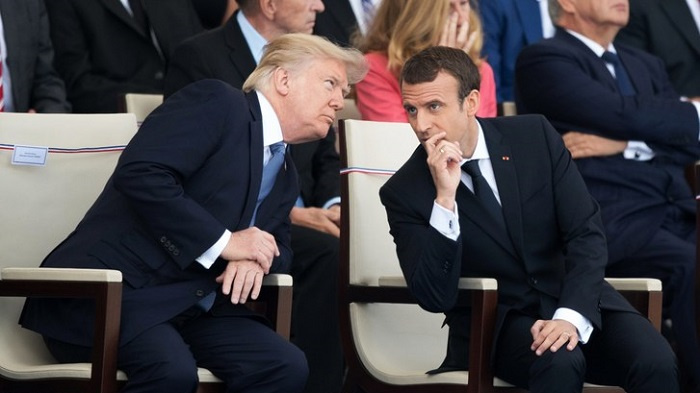Do Not Expect Much from EU in the Nuclear Deal

IRD: In your previous interviews with Iranian Diplomacy, you had predicted that Donald Trump will certainly pull out of the Joint Comprehensive Plan of Action, the nuclear deal. How do you see Trump’s Tuesday speech and his formal declaration of withdrawal?
AB: As you mentioned, I believed that Trump would pull out of JCPOA at the end of the 120-day deadline he had set for ‘fixing’ the deal. But the tone and content of his Tuesday speech was unanticipated. What I predicted was that he would only announce Washington’s formal withdrawal from the deal on Tuesday, and announce snapback of sanctions after a minimum of three months. But he issued his executive order for return of the sanctions a few minutes after his speech.
Trump’s tough words and actions are no doubt the result of powerful lobbies by pro-Israel pressure groups, plus Saudi Arabia which has hinged its 480-billion dollar arms deal with Washington on withdrawal from the JCPOA.
IRD: How do you see the reaction of European officials, particularly Federica Mogherini? Can we think of a JCPOA without US and only with EU?
AB: Although as EU’s chief diplomat Mogherini defended the JCPOA, but we can’t count on those words. With Trump’s strong words and actions, Brussels will not take action to protect the nuclear deal, at least until the tensions following Trump’s speech die down. So the conditions are very tough for European and even non-European allies of Washington to back the JCPOA.
IRD: How could Trump’s decision change the attitude of its non-European allies?
AB: Countries such as India, South Korea, and Japan will definitely face problems in financial transactions, insurance, maritime collaboration, forex transfer and even purchase of oil and gas in their trade with Iran.
IRD: European countries can still stay in the JCPOA despite the White House’s desire. How would European companies deal with Iran in the future?
AB: We are now facing a complex diplomatic situation which will persist for some time. From Trump’s speech on Tuesday, we can say that he will continue pressure on Europe. So it is hard to predict how Brussels will response. President of the European Council Donald Tusk has spoken of a “united European approach”. But if EU fails to reach a united decision, European companies and banks will seriously rethink their collaboration with Iran.
IRD: In his speech, Donald Trump threatened countries who might help Iran in continuing its nuclear program. How serious do you see his threat? And how is Washington going to discern between a civil and a weaponized nuclear program?
AB: Trump spoke in a manner like Iran already possesses 200 nuclear warheads. So it is clear Washington will see no difference between these two types of programs. Any country aiding Iran in developing its peaceful nuclear program will have to face sanctions coming from US’ peculiar stance.
IRD: What is your view of Rouhani’s immediate response to Trump’s speech?
AB: I was hoping that Iran’s president doesn’t give a speech immediately after Trump’s decision to withdraw from the JCPOA. Anyway, he made an acceptable speech. Despite calls for retaliation and Iran’s withdrawal from NPT, Tehran showed a tactful response to the US’ renege on its promises. We need this continuous logical attitude in the future, otherwise, extreme approaches will help form a consensus against Iran. The government may face attack from hardliners inside Iran but its actions can determine if the atmosphere around the nuclear deal will become better or worse. Tehran should analyze the situation before any decision to resume its nuclear program.
* This article was originally published in Iranian Diplomacy Persian service.

